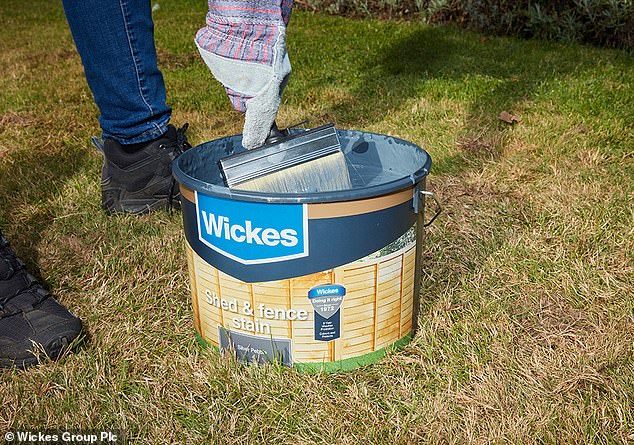- The home improvement retailer was previously owned by Travis Perkins
- Wickes’ like-for-like sales declined by 4.2% in the 16 weeks ending 20 April
Wickes reiterated its annual guidance even though its turnover declined during the opening months of 2024 amidst weaker demand for big-ticket items.
The home improvement retailer, which Travis Perkins previously owned, said its like-for-like sales fell by 4.2 per cent in the 16 weeks ending 20 April.
Revenues in its design and installation business slumped by 18.2 per cent following a bumper comparative performance the previous year, when it was profiting from a stronger order book.

Home improvement retailer Wickes reiterated its annual guidance even though its turnover declined during the opening months of 2024
Wickes noted that the market for expensive purchases ‘remains challenging,’ having been affected over the past year by interest rate hikes and cost-of-living pressures.
Yet the group achieved its fourth successive quarter of turnover growth in its retail arm, which expanded by 0.6 per cent as higher transaction volumes made up for ‘mild deflation’ in selling prices.
Its TradePro discount scheme for tradespeople added another 57,000 members and enjoyed a 12 per cent rise in revenues.
Alongside this, Wickes saw a 13 per cent increase in interior paint sales and a 25 per cent jump in orders for its lifestyle kitchen ranges.
Following the result, the Watford-based company has upheld its full-year outlook. In March, Wickes said it was ‘comfortable’ with the consensus forecast for £43.6million in adjusted pre-tax profits.
David Wood, its chief executive, remarked: ‘While the external environment remains uncertain, our overall profit expectations for the full year remain unchanged.’
Like many DIY retailers, Wickes boasted a roaring trade for much of the Covid-19 pandemic as restrictions forced Britons to spend more time indoors.
Demand was also uplifted by cheaper mortgages, a temporary stamp duty cut, the accumulation of excess savings, and a growing desire among Britons to reside in larger properties.
Trade has flatlined since lockdown curbs ended, and the Bank of England began raising interest rates to dampen inflation, thereby escalating mortgage costs.
Last year, Wickes’ like-for-like turnover dipped by 0.3 per cent while its profits after counting software-as-a-service investments plummeted by 31 per cent to £52million.
However, its earnings surpassed expectations and the business maintained total dividend payments of 7.9 pence per share.
Wickes Group shares were 1.8 per cent down at 143p at Wednesday lunchtime.










